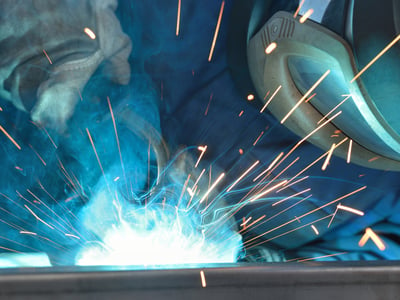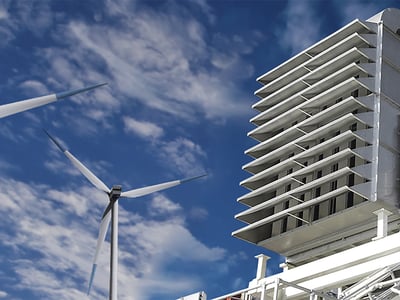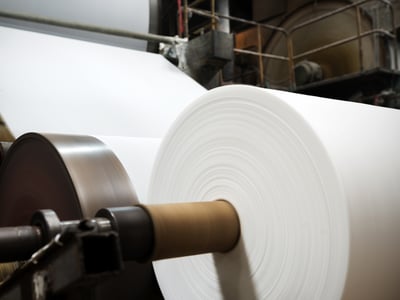Heavily contaminated air in process industries can disrupt process efficiency and pose health, safety and environmental risks. Robust air filtration and corrosion control solutions help you effectively mitigate these industry issues.
Contamination can include heavy dust levels, explosive dusts and molecular pollutants. They result in odours, corrosive reactions, and can even pose a toxic threat to operators and the environment. Our fit-for-purpose air filtration solutions provide outstanding long-term performance in harsh operating conditions.
What are you looking for?

Increase production efficiency, reduce your environmental impact and keep your shop and workers safe. Our dust and fume collectors and air filters for metalworking work hard for you, so you can focus on getting the job done.

Get tough on dust. Camfil’s dust control and air filtration solutions are specially designed for high performance in harsh mining environments.

When your industry relies on steady performance, availability and reliability, high quality air filtration is critical to maintain your equipment in top condition for many years. Our air inlet filters and acoustic systems are designed accordingly.

Combat the corrosion and irreversible damage caused by pollutant by-products at pulp and paper mills. Prevent equipment failure with Camfil’s molecular filters in a variety of applications.

Did you know Camfil have a full range of retrofit filters that can be utilised in all the most common brands on the market. Camfil filters are not just designed to work but to optimise your dust extraction systems performance
Food and beverage Life science and healthcare Energy and Power Systems Manufacturing and machineryOften the initial purchase price for air filters or dust collectors is just the tip of the iceberg. The true costs for energy, maintenance and disposal are lurking below the surface. To make the most economic decision in the long-run, a detailed calculation considering all the factors will help to reduce your overall expenditure.
Food and beverage Life science and healthcare Sustainability Commercial and public buildings Electronics and optics Standard and regulations Manufacturing and machineryProcesses in manufacturing facilities often generate dust and fumes which for example can pose health risks for your operators or compromise the quality and safety of your products. Determining the right capture and filtration solution helps to protect against the main risks of uncontrolled emissions and thus to create safe work environments.
Austrian metalworking company turned to Camfil because they were not satisfied with the performance of their existing extraction system. Camfil´s Gold Series X-Flo dust & fume collector equipped with Dura-Pleat filter cartridges now provides a highly reliable solution for their 24/7 operation while reducing costs for filter replacement and maintenance.
Dust collection systems are an important part of any manufacturing process, so they need to be sized and designed properly. One critical design component is specifying the proper filtration media, which requires analysis of the dust in the process and all operating conditions.
Dust collectors are necessary safety systems in many manufacturing and processing plants, thus as in the food processing industry. But if they are not designed, installed and maintained properly, these systems themselves can cause serious problems. In this eBook we highlight 10 ways how to make sure your dust collection system is up to the tasks of keeping workers safe, maximising production uptime and meeting regulatory compliance.
A properly designed and installed dust collection system will effectively catch, convey and separate hazardous and nuisance dusts. Our new ePoster pinpoints key areas to watch and signs to look for that will help you avoid problems with your dust collection system and to keep up process availability in your production facility.
Almost all industrial manufacturing, processing or packaging applications generate dust as a side effect. Many of these dusts are both combustible as well as explosive, and removing them from the work place can significantly reduce the risk of serious accidents. It is estimated that there are approximately 2,000 dust explosions in Europe annually. Most of these are minor but some are very destructive. So by extracting the dust, the risk in the production is reduced, but unless the extraction system is safe the risk is just moved.
Dust collection systems are all safety devices and thus state-of-the art modern methods of validation and certification are required. Furthermore it is vital to ensure that the system is still in compliance after perhaps changed process conditions, to provide maximum safety for personnel and the facility. It is also recommended to carry out quality audits, process reliability surveys and annual safety inspections.
Welding, grinding and laser/plasma cutting processes produce huge amounts of fine PM1 particles and various harmful gases that cannot be removed from the indoor air by ventilation alone.
These airborne particles of metalworking fluids must be extracted directly from the work area to avoid spreading to the ambient air when opening the doors of the tooling machine.
Metalworking facilities must be diligent in controlling harmful dust and fumes, especially those that contain harmful metal particulates from processes such as welding, thermal cutting, sanding and polishing. To better understand what should be considered when handling dust and fumes in metal processing we have created an ebook with 7 tips as a free download.
The potential for a combustible dust explosion is a reality in any industrial manufacturing facility. But operations with processes that generate combustible metal dusts are especially at risk and require special consideration when selecting an equipment supplier. Camfil´s new eBook lists seven important considerations for determining whether a dust collector equipment supplier has the knowledge necessary to keep your operation safe and compliant.
Dealing with airborne odours, toxins and gases can be a big challenge. Learn about how Molecular Contamination Control and how it can protect against the harmful effects of these airborne contaminants.
Camfil helps customers reduce their carbon footprint with EPA hydrophobic air inlet filters.
Molecular Contamination Control (MCC) products remove molecules, gases and vapours from the air that cannot be captured using ordinary particle filters. Molecules are typically 1,000 to 10,000 times smaller than the most penetrating particles that pass through HEPA and ULPA filters.
In the manufacturing industry air quality can be compromised by the production processes.
Case Study: Protecting Family-Owned Auto Body Shop. With a reputation as the best in their area, the third generation, family-owned body shop rehabilitates the exterior of foreign and domestic vehicles as well as motorcycles, specialising in classic and specialty cars.
GSX collectors are ideal for use in pharma, mining, food and chemical processing industries. They also provide a safer work environment in metalworking applications like welding and cutting.